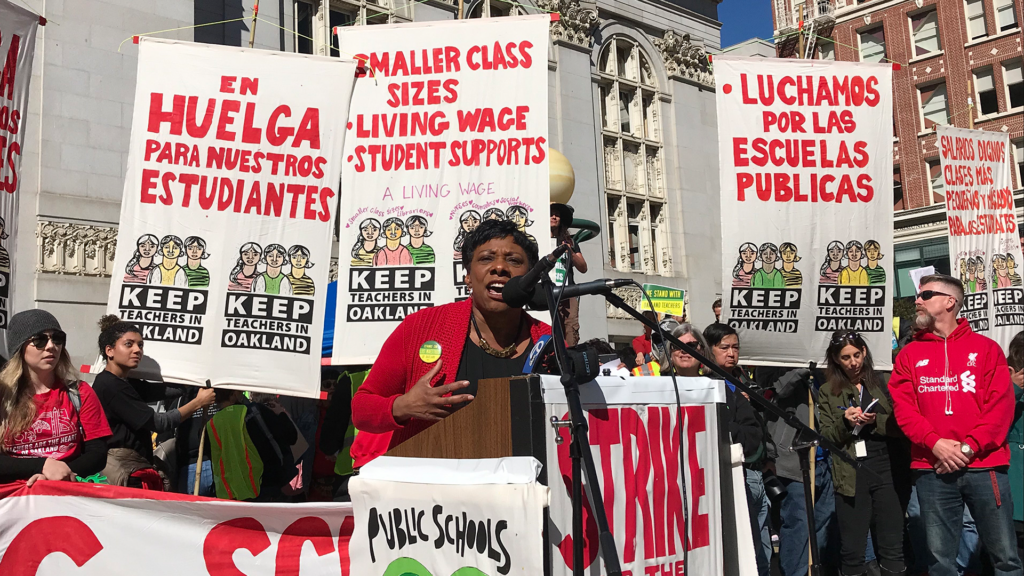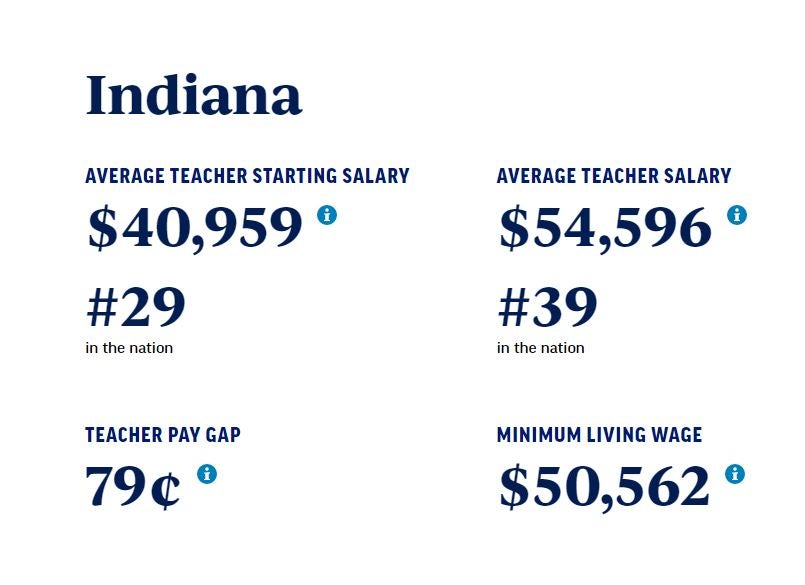National Education Association addresses Indiana teacher shortage
INDIANAPOLIS (WISH) — The country’s largest education labor union is addressing the teacher shortage in Indiana.
According to the Indiana Department of Education, as of Wednesday, there are still more than 1,170 open teaching positions in the state and 1,300 other open positions within schools.
Becky Pringle, the president of the National Education Association (NEA), says this is a chronic crisis in Indiana and across the country.
“As we start a new school year we of course face many challenges. Most central of which is educator shortages. Something that I know our colleagues are facing in Indianapolis and all over the country,” Pringle said.
The union represents more than 3 million teachers. Pringle says it’s time to get to the root of the issue.

“We have to address those issues that are driving really what is a chronic crisis that was just exacerbated by the pandemic. We have to address those issues that our educators are saying to us, are driving them from the profession. Our students and colleagues are saying they won’t go into education. We have got to address that so we can ensure every student, everyone has a caring and qualified – certified teacher in their classrooms this year and beyond,” Pringle said.
The NEA says there is a perfect storm brewing in public schools. Low pay, plus the pandemic impacts and a lack of professional respect from society, are leaving classes at a loss.
A recent Chalkbeat analysis shows more teachers than usual left the industry in the Spring of 2023. An NEA member survey in 2022 found that 55% of educators – regardless of age or years of service – planned to leave the profession earlier than expected. The survey also found that 96% of the members say an increase in salary would help combat burnout.
“The reality is that as educators they have never been paid in a professional manner. They still suffer from a wage penalty gap where they earn 25% less than other professionals. That has an impact on their wellness – because they have to work 2 or 3 jobs,” Pringle said.
According to the NEA, Indiana is ranked 29th in the country for starting teacher salary at $40,959 a year. Indiana is also ranked 39th for average teacher salary at $54,596 a year.

The NEA says the number of individuals entering and graduating from teacher preparation programs is much lower now than a decade ago, while the percentage leaving positions in public education continues to increase.
According to the NEA website, solutions to educator shortages include recognizing these key points:
- Requires evidence-based, long-term strategies that address both recruitment and retention.
- Specific attention to recruiting and retaining educators of color who face unique barriers to pursuing education careers.
- Failing to address educator shortages has led to negative effects on students, schools, districts, and communities.
Pringle says school systems also need to take better care of their staff.
“There is no question that educators as part of our society experience just such incredible overwhelm and exhaustion and fear and anxiety. During the pandemic. After the pandemic. As members of their communities, they were not immune to that,” Pringle said. “They have told us that they are concerned about their and their colleague’s wellness and mental health and ability to sustain the level of work they are doing at this moment – to stand in the gaps for our students.”
Pringle says the Carmel-Clay School District’s approach of added perks offered at a Wellness Center that was recently highlighted by a News 8 report, is a start. The district has unpaid benefits, such as doctors, fitness amenities, and health support.
Still, Pringle says education needs to be looked at as an attractive career path and supported as such. Prioritizing teachers and in turn, prioritizing students.
“As school districts think about the wellness of educators and making sure they can keep them in the profession, they have to think about it from a holistic place. So that we are supporting our educators to do the jobs they love,” Pringle said.